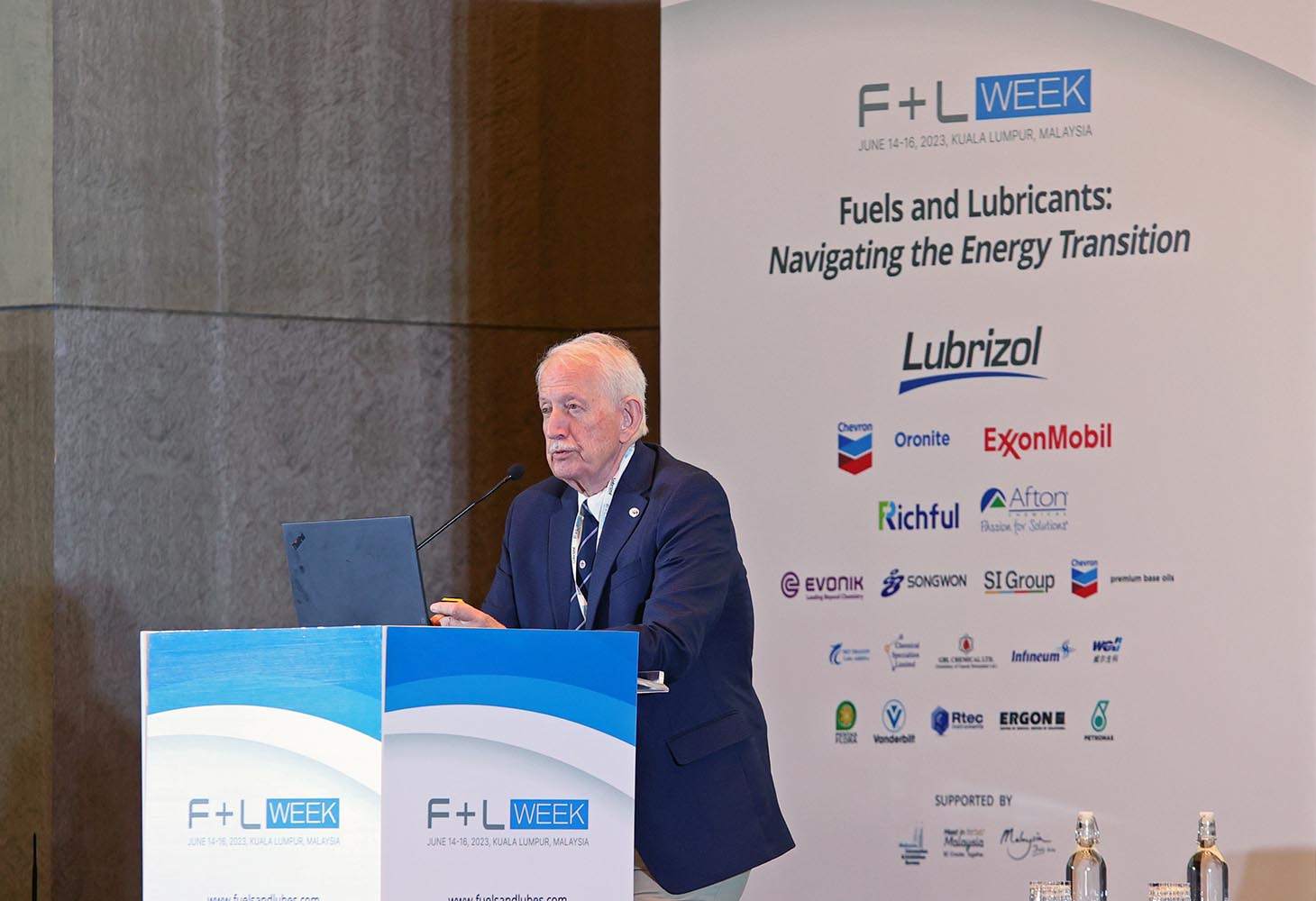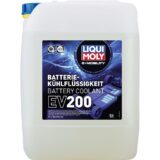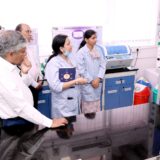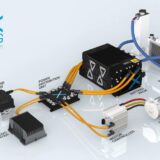
API ready to develop new energy vehicle fluid standards
New energy vehicles (NEV) are the future in automotive technology. However, fluids for NEVs are very different to those required in internal combustion engines (ICE). Changing automotive technologies have established a need to define NEV fluid standards, says Dennis Bachelder, senior engineer at the American Petroleum Institute (API) based in Washington, D.C., U.S.A.
Speaking at F+L Week 2023 on June 15 at the Four Seasons Hotel in Kuala Lumpur, Malaysia, Bachelder outlined several “surprises” with respect to electric vehicle fluids. High motor speeds (RPMs) are associated with aeration issues, fluids can interact negatively with exposed copper, and lubricant/additives behave differently in electric/magnetic fields compared to an ICE environment, he says. There is also greater risk of shock loading on gear teeth from the electric vehicle transmission acceleration and deceleration.
Bachelder summarised efforts by API to establish a partnership within the OEM and lubricant industries to assure fluid performance standards are effective and meet NEV equipment designs. The development of existing automotive fluid standards involves a diverse group of stakeholders including OEMs, tier suppliers, lubricant manufacturers and lubricant component suppliers (additives and base oils).
Over the past couple of years, API has been working on what it terms the “Big Tent”, an initiative to bring all stakeholders together in one place, under one roof to cooperatively set NEV standards.
A Big Tent meeting was convened at the 42nd Automotive/Petroleum Industry Forum during the API Detroit Advisory Panel (DAP) in May of this year. Attendees discussed testing methods, the current body of research, and future planning. OEMs, Tier 1 suppliers and users are ultimately served better when there is a joint development of a fluid, says Bachelder.
API welcomes input from all parties with a material interest. Standards will be based on some shared test development which means resources and outputs can be shared. This also ensures outputs are understood by all the participants in the process. Bachelder called for interested parties to contact API to become involved in the process.














